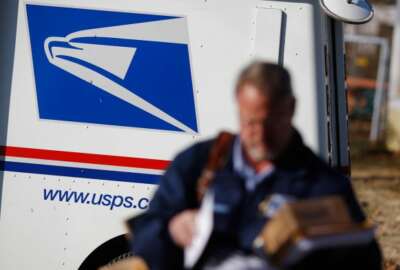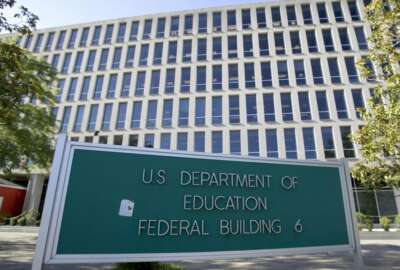

For most of the Postal Service’s 600,000-employee workforce, work continues as usual, but in a heightened state of vigilance.
Agencies have allowed their telework-ready employees to work from home to the fullest extent possible this week, and for the next few weeks to come, in some cases, following the Trump administration’s latest coronavirus guidance over the weekend.
For most of the Postal Service’s 600,000-employee workforce, however, work carries on as usual albeit in a heightened state of vigilance.
In the meantime, the Postal Service has released new guidance on steps supervisors and managers can take to mitigate the threat, while postal employees and unions continue to seek answers.
USPS, in updated guidance released last Friday, urged supervisors and managers to “allow liberal sick leave for employees who are sick.”
“While there is still much to learn about the unfolding situation involving the spread of Coronavirus Disease 2019 (COVID-19), the immediate health risk from COVID-19 is considered low for the general American public,” USPS wrote in the memo.
However, the specifics of that liberal sick leave policy remain unclear.
American Postal Workers Union President Mark Dimondstein, in an email to members on Friday, said the union began talks with USPS about their leave policy “as it relates to new hardships of child/family care placed on many of our members due to school closings in many states.”
USPS officials, Dimondstein said, told the union they’re working to implement the liberal sick-leave policy. The union, he added, made “concrete proposals” about how to define the policy.
“The union view is that at a minimum, ‘liberal leave’ should mean that no leave usage is held against employees and [leave without pay] should be available to those who do not have leave balances to cover the time,” Dimondstein wrote in the email.
Several USPS employees across the country have tested positive for coronavirus, including two in White Plains, New York, News12 Westchester reported.
Meanwhile, a USPS Network Distribution Center employee in Seattle tested positive on Feb. 29 after extended overseas travel, according to the National Postal Mail Handlers Union.
USPS, in its updated guidance, said employees returning to work after traveling to China, South Korea, Iran, Italy or most other European nations “must not report to work for a period of 14 days from the date they departed” from any of those countries.
That same guidance applies to employees returning to work after a cruise ship vacation.
Employees instructed to stay home under these guidelines will receive “other paid leave” to cover the employees’ absences for as many as 14 days.
In a newsletter to members, Omar Gonzalez, APWU’s western regional coordinator, said some managers, but not all, have conducted “town halls” with employees.
“USPS HQ officials responded quickly to the situation and in activating internal protocols. The same can not be said about all local management and work floor supervision,” Gonzalez wrote. “As in the past, directives emanating from Washington do not always filter down to or are acted upon by managers tasked with ensuring the nation’s mail is processed and delivered often hampered by short staff. Safety is seldom first to the bosses.”
APWU urges members to clean shared operation work areas – including keyboards, monitors, touchscreens, pens, styluses and portable scanners, as well as the steering wheels and seatbelts of delivery trucks.
However, several postal employees have expressed concerns about exposure to the coronavirus going about their work. USPS delivers mail to about 160 million addresses every day.
A mail carrier from Pennsylvania raised concerns about the threat faced by receiving mail from households under quarantine.
“Licking envelopes and touching mail and mailbox handles shouldn’t be allowed for our safety,” the mail carrier wrote.
The Centers for Disease Control and Prevention has advised that there is “likely very low risk” that COVID-19 can spread from packages “because of poor survivability of coronaviruses on surfaces.”
The CDC has also found that there is currently no evidence that would suggest that COVID-19 can spread from imported goods.
Another postal employee said he had asked his supervisor for surgical masks, but was told that they didn’t have them.
“They are providing gloves to customers. Nothing for employees so far,” the employee said.
Copyright © 2025 Federal News Network. All rights reserved. This website is not intended for users located within the European Economic Area.
Jory Heckman is a reporter at Federal News Network covering U.S. Postal Service, IRS, big data and technology issues.
Follow @jheckmanWFED

 First Look
First Look 